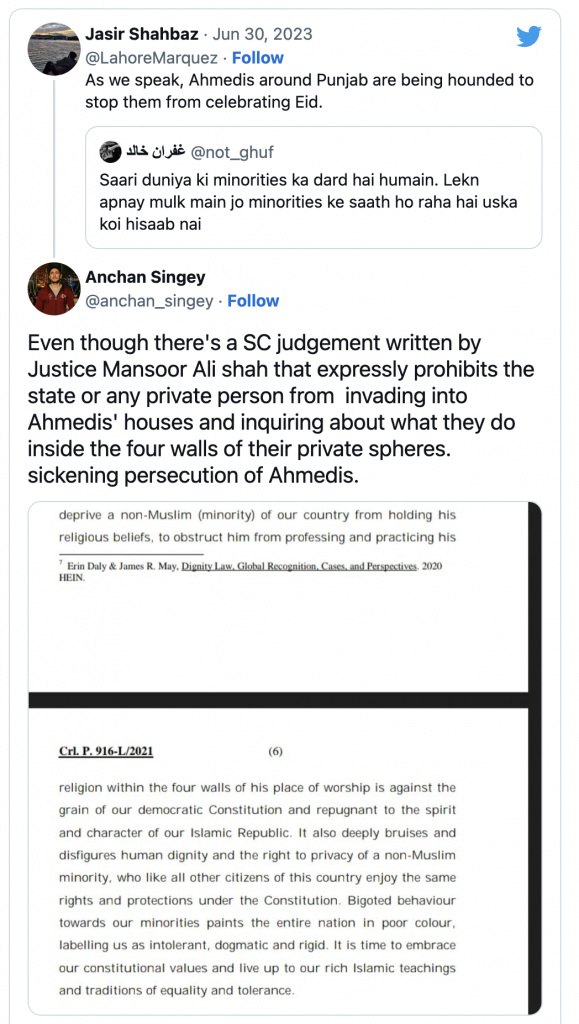At least four Ahmadis were detained, goats and bulls confiscated.
Ahmadis were not allowed to observe all the rites of Eidul Azha this year, with state machinery activated in conjunction with locals to stop them from carrying out the ritualistic animal sacrifice.
Per Islamic beliefs, the sacrifice of Prophet Ismail (AS) by Prophet Ibrahim (AS) is observed through the sacrifice of animals such as goats, cows, bulls and camels.
Reports obtained from different parts of Pakistan showed that at least four people identifying their faiths as Ahmadis were apprehended on Friday. At the same time, several more were booked for either carrying out the sacrificial ritual or planning to do so.
READ MORE: Harassment Of Ahmadis On Eid-ul-Azha
Police also confiscated goats and bulls intended to be slaughtered from the homes of these individuals.
A case was lodged in Azad Jammu and Kashmir, and an individual who identifies as an Ahmadi was arrested, police said.
Moreover, in Nankana Sahib near Lahore, the District Police Officer (DPO) approved an application to register a case against three Ahmadis. Police are conducting raids to arrest these individuals.
In Faisalabad, police said they had confiscated goats and bulls from at least two houses owned by Ahmadis ahead of Eidul Adha.
READ MORE: For Saying ‘Assalam o Alaikum’ 30 Years Ago, 77-Year Old Ahmadi Spends Month Behind Bars
There were unconfirmed reports that police took sacrificial meat stored in the freezer of a house and detained a minor.
In Sialkot, at least three Ahmadis were detained.
This follows official notifications issued in several parts of the country and campaigning by lawyers to actively prevent Ahmadis from sacrificing animals on Eidul Adha. They argued that if Ahmadis were allowed to carry out the ritual, they would engage in an act that would signify they identify as Muslims, which is prohibited under the law.
READ MORE: Searching For Home: The Ahmadiyya Community’s Struggle To Escape Prosecution
However, a 2015 judgement by Justice Mansoor Ali Shah in the Supreme Court says that practices undertaken within the confines of one’s home enjoy constitutional protection.

Original post can be read HERE.
